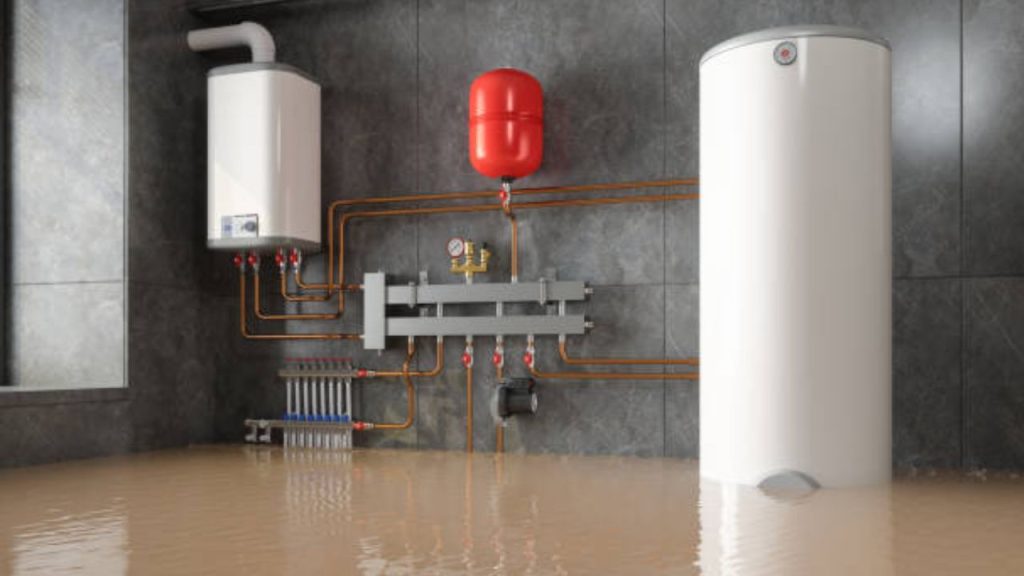
Did you know that New Jersey is home to 9.29 million people and is one of the best places to live?
The Garden State is a great place to live for many reasons, such as its proximity to cities like Philadelphia and New York, many public parks nearby to explore, boardwalk beaches, and many more.
However, it experiences extreme weather conditions. According to The National Centers for Environmental Information highlighted that, from 1980 to 2024, New Jersey experienced 69 confirmed extreme weather events, each causing $1 billion in damages.
Stats About Monthly Precipitation in New Jersey
New Jersey receives an average yearly precipitation of 43 to 47 inches. This steady rainfall can be advantageous for the environment but can also pose significant challenges related to water damage for residents.
Let’s look at the monthly precipitation averages and their implications for water damage.
| Month | Precipitation (inches) |
|---|---|
| January | 3.50 |
| February | 2.87 |
| March | 4.17 |
| April | 4.17 |
| May | 4.06 |
| June | 4.02 |
| July | 4.72 |
| August | 3.70 |
| September | 3.82 |
| October | 3.58 |
| November | 3.62 |
| December | 3.78 |
Seasonal Water Damage Risks Throughout the Year
- Winter Moisture: In January and February, significant rainfall can lead to leaks and water intrusion in homes if gutters and roofs are not well maintained.
- Spring Saturation: March and April, with the highest average precipitation, increase the risk of basement flooding and water damage in low-lying areas.
- Summer Soaks: July is the peak month for heavy rainfall, with 4.72 inches of rain. This can overwhelm drainage systems, leading to potential flooding and structural water damage.
- Autumn Preparedness: From September to November, regular checks on waterproofing and drainage are necessary to prevent long-term damage and mold growth.
Now that we have learned about the seasonal impact of rainfall throughout the year, it is important to know about mold growth following water damage. Did you know that mold can grow within 24 to 48 hours after water damage? Mold does not only affect the home’s structure but also your overall health. It can lead to various respiratory and digestive issues. That is why it is crucial to know the causes of water damage ASAP.
Common Signs of Water Damage in Homes
1. Water Stains

The obvious signs of water damage include stains and slight discolorations on the wall, surface, and ceiling. The signs of damage are visible at the corners where the wall meets the floors and ceiling.
2. Humidity

Humidity results in stains, peeling paint, mold growth, a musty smell, and swollen window frames.
3. Mold

Mold Is indicative of two things: humidity issues or water leaks. It is regarded as one of the dangerous signs of water damage. Further, it can be found anywhere where oxygen and moisture (at least 70-75%) are present.
4. Water Dripping Noises
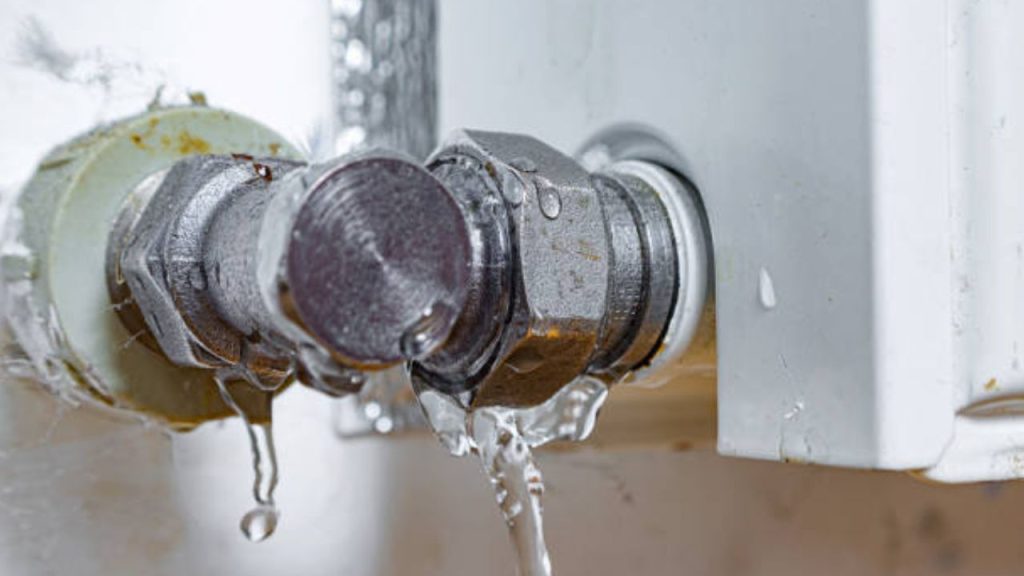
If you hear a persistent noise or notice water dripping even if no water is being used, it could mean a potential leak in a pipe.
5. High Water Bill
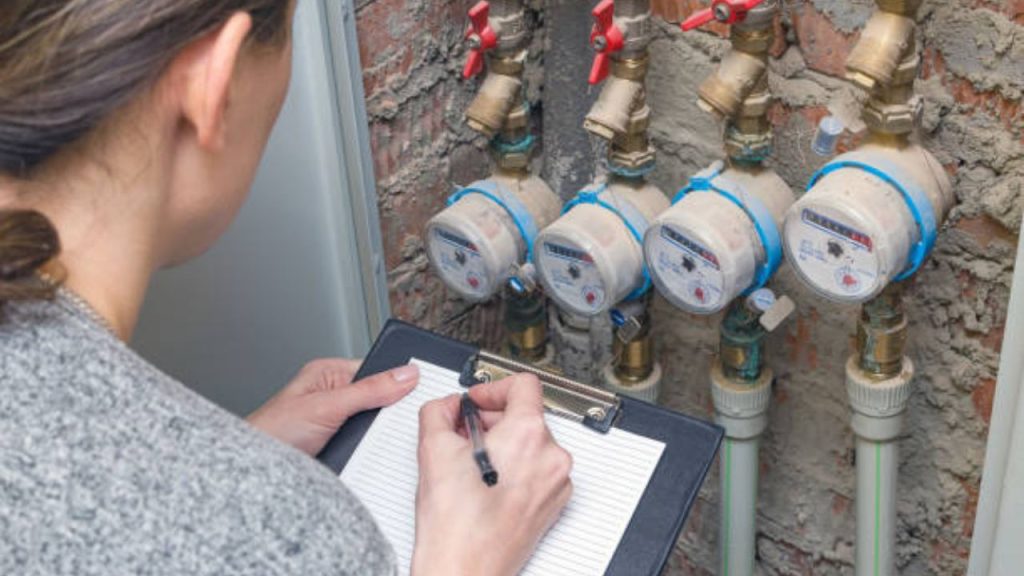
Even when you notice that your water bill is unexpectedly higher than usual, it may be due to the water damage.
In addition to that, water damage in a home weakens the load-bearing materials, damages foundations, fosters mold growth, and can lead to ceiling and wall collapse if not addressed promptly. Recognising these signs early on can prevent extensive damage. For effective water damage restoration in New Jersey, prompt action and professional help are important to mitigate risks and restore your home’s safety and integrity.
So, don’t worry. Here, we will explore the process of understanding water leak damage, from detecting its early signs to the tools used to fix it.
Water Leak Damage – Understanding and Identifying
Water damage can cause significant risk to the home’s structure, resulting in a serious problem. To tackle it, here are common areas where leaks occur and tools used to detect it:
1. Common Areas Where Water Leaks Occur
- Around the toilet: You can find a common leak around the base of the toilet.
- At the water heater’s base: Leak may occur due to aging or faulty components.
- Showerheads: Check for leaks where the shower arm meets the wall.
- Irrigation systems: Look out for wet spots around where the sprinkler heads are and where the pipes are underground.
Tools and Methods for Detecting Leaks
Moisture Meter
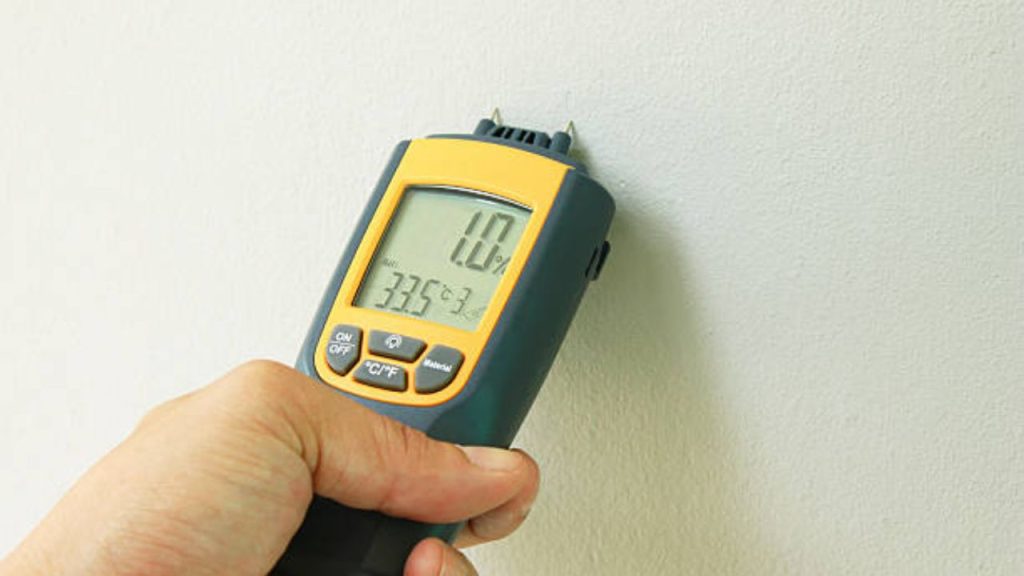
This tool measures the amount of water within a material sample, helping to determine moisture levels.
Infrared Cameras
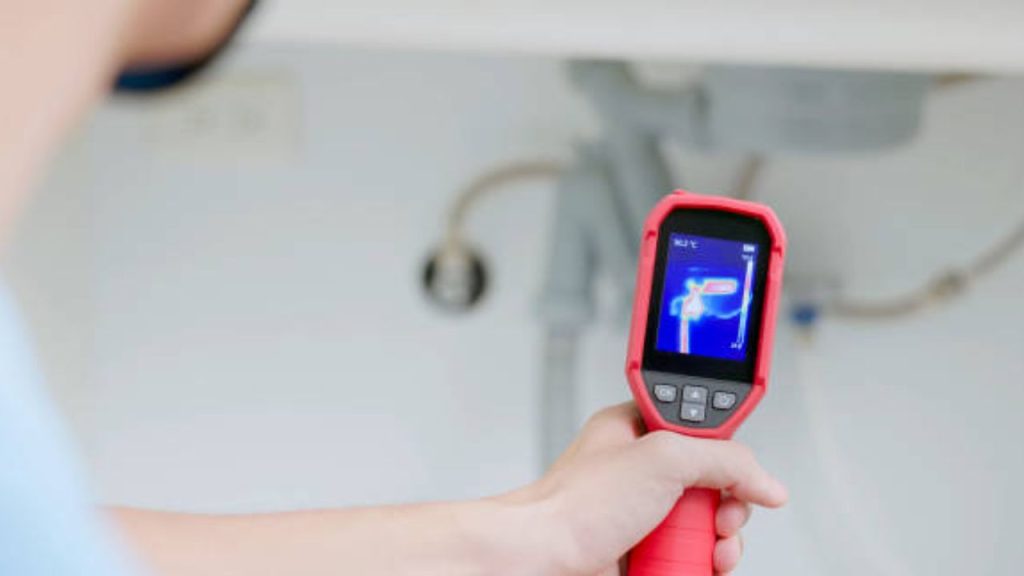
When there is a water leak, the water can alter the temperature difference in the surrounding area, which the camera can detect and display as a visual image.
Acoustic Equipment
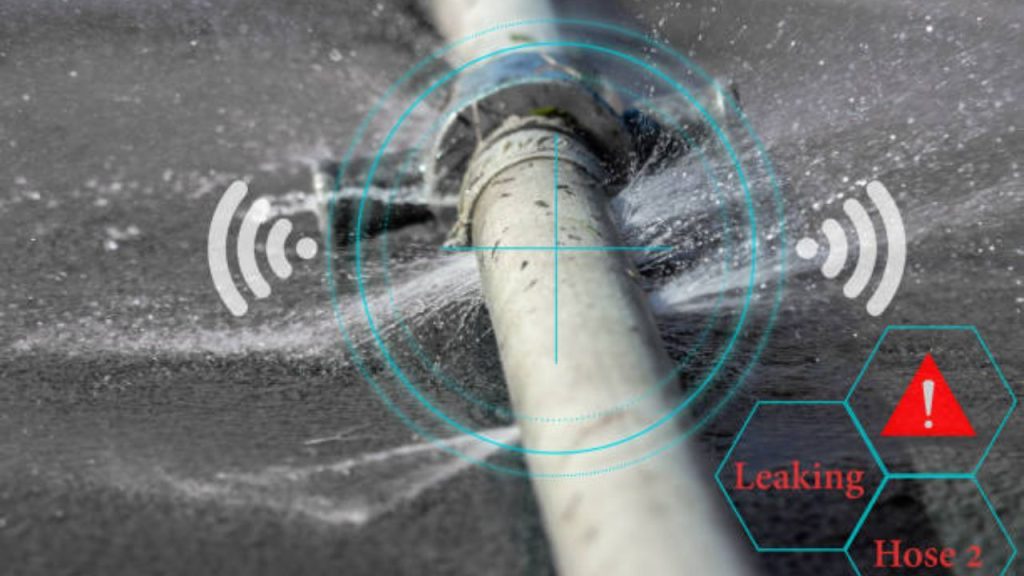
When water makes a noise as it escapes from a pipe, the equipment listens for that noise and finds the water leak.
Common Causes of Water Damage in NJ Homes
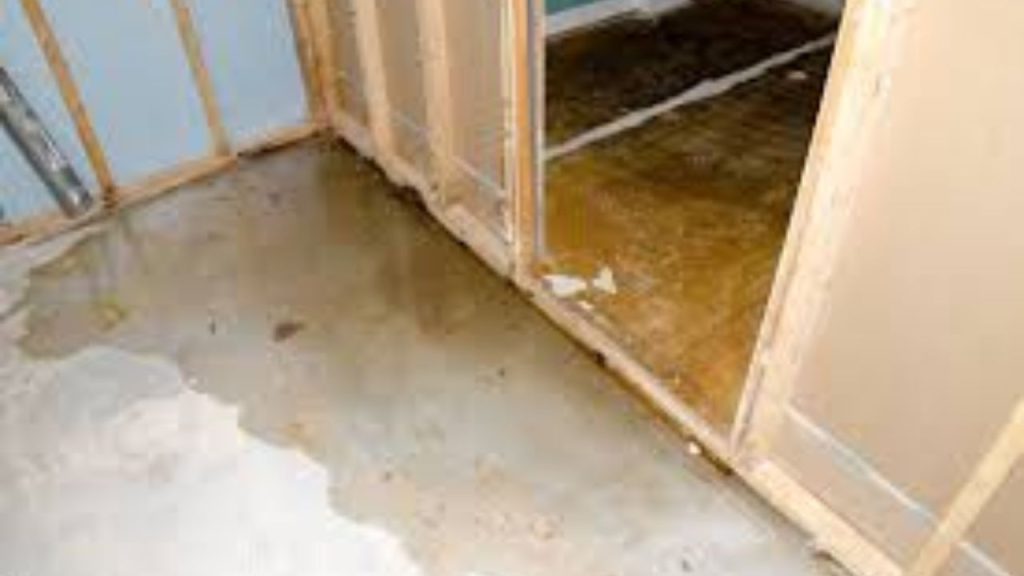
Water damage insurance claims are one of the common types of claims in New Jersey. This highlights that water damage can become a serious issue if not addressed properly. So, let’s understand the common causes for prevention and mitigation efforts:
1. Heavy Rainfall and Flooding
Streams through cities and towns are directed underground into special drains called storm drains. During rainfalls or floods, the storm drains get overwhelmed with debris, which reduces their ability to channel water away effectively.
New Jersey has several major river systems, including the Delaware, Passaic, and Raritan Rivers, which can overflow during heavy rainfall. This can pose a huge risk to properties, especially those located along the riverbanks and low-lying areas.
2. Leaky Roofs and Poor Drainage
When roofs start to pool water and get backed up on the roof due to clogged gutters, this backup can cause the roof to become heavy with water, resulting in leaks. That’s why it is important to have regular roof inspections and gutter maintenance.
Another thing is that proper grading around your home is vital, as it prevents water damage by ensuring that rainwater is directed away from the foundation.
3. Frozen Pipes
Frozen Pipes can also be a source of water damage. As temperature drops, water in a pipe can freeze. Then, the water starts to expand, thus exerting extreme pressure on the pipes and plumbing joints, sometimes causing them to burst or crack. This can be prevented by foam pipe insulation that you can wrap around the pipes to keep them warm.
Another strategy is to let faucets drip during cold weather to prevent pipes from freezing. This keeps water moving, reduces the pressure buildups, and helps prevent ice blockages in the pipes.
4. Faulty Plumbing Systems
- Aging Pipes: Over time, pipes can deteriorate due to wear and tear, leading to cracks, holes, or weak spots.
- Corroded Fittings: Corroded fittings, such as joints and connectors, can corrode due to continuous exposure to water and minerals. Corrosion weakens these components, making them more susceptible to developing leaks.
- Appliance Issues: Household appliances like washing machines, dishwashers, and water heaters have hoses and connections that can wear out or fail. Water leaks can occur if these hoses crack, connections become loose, or seals degrade, allowing water to escape.
So, regular plumbing inspection and maintenance are necessary because plumbing issues can arise at any time. Also, replacing old appliances with energy-efficient models saves money on utilities and reduces environmental impact.
How to Prevent Water Damage in NJ Homes

Till now, we have discussed common causes of home water damage. To keep your home safe and avoid spending a lot of money on repairs, here are some things you can do to stop water damage from happening.
Heavy Rainfall and Flooding:
- Clear Storm Drains: Regularly remove debris from storm drains to ensure proper drainage.
- Install Sump Pumps: A sump pump helps remove water that has been accumulated in the sump pit.
- Elevate Electrical Systems: To minimize the likelihood of short circuits, corrosion, and other water-related damage, it is preferred to raise the height of electrical systems to a minimum of 24 inches( 2 feet) for indoor and 30 inches (2.5 feet) for outdoor installations.
Leaky Roofs and Poor Drainage
- Inspect Roofs Annually: Look for missing shingles, damaged flashing, or clogged gutters.
- Clean Gutters and Downspouts: Ensure water flows away from the foundation.
- Improve Yard Grading: Direct water away from the home’s foundation by sloping the ground.
Frozen Pipes:
- Insulate Pipes: Use foam insulation in Attics, basements, and crawl spaces.
- Drip Faucets: Allow faucets to drip during freezing temperatures to prevent pipe bursts.
- Seal Cracks and Holes: Seal gaps where cold air may reach pipes.
Frozen Plumbing Systems:
- Schedule Regular Inspections: Check for aging pipes, corroded fittings, and appliance issues.
- Replace Aging Pipes: Change the old pipes to new ones to reduce the risk of leaks.
- Maintain Appliances: Inspect hoses and connections on appliances.
General Tips for Prevention
- Monitor Water Usage: Watch for unexpected increases in water bills. Compare current usage with past patterns and notice any hikes or increases.
- Use Water Leak Detectors: Install sensors to detect leaks early. There are various types of sensors available in the market, including floor sensors, inline sensors, and wireless sensors. By investing in water leak detectors, you can protect your home from the costly consequences of undetected plumbing leaks.
- Know Shut-off Valves: Know the location of the main water shut-off valves. By knowing the location of shut-off valves, you can stop the water flow in case of plumbing emergencies, and ultimately, you can prevent serious water damage and minimize the need for costly repair.
Water Damage Restoration Partner: Above & Beyond
When water damage occurs, you must act immediately. So, Above & Beyond is here to help you. We are a trusted provider of comprehensive water damage restoration and mold remediation services across New Jersey.
With over 15 years of experience, we specialize in handling various types of water damage emergencies, from burst pipes to severe flooding.
Our certified technicians are trained by industry-leading organizations. We ensure your property is restored to its pre-damage conditions using state-of-the-art equipment and techniques.
Conclusion
In short, Water damage poses significant challenges. However, with proper prevention and timely action, you can protect your properties. By maintaining roofs, gutters, and plumbing and using modern detection tools, you can minimize the risks. If damage occurs, you can rely on reputable water damage restoration services to restore your home.
Stay prepared, act quickly, and protect your home from water damage.